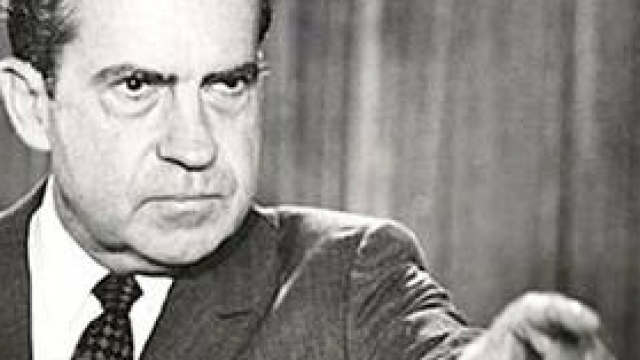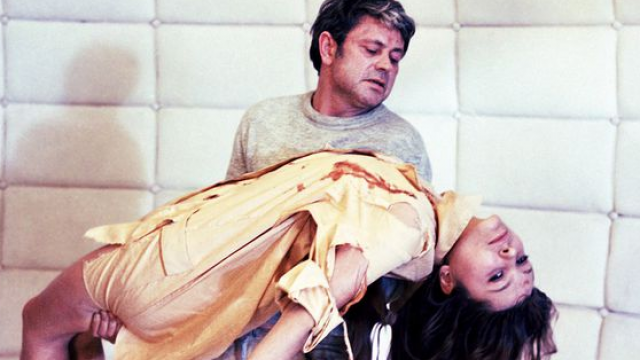It’s Good Literature, Good Neighbors and Good Riddance Week on Russian TV, as two Russian novelists and a poet get their due; Russian-Polish relations get a going-over; and the trauma of World War II gets put a bit further behind us by good looks at the heroism the war engendered. Here’s the where and when:
Besides airing a good-natured sitcom about an American journalist in Moscow (see here), STS also did its “internationalist duty” in bleakly New Cold War-ish 2015 by putting on a clever serial about clever Russians abroad. “Londongrad” was a refreshing novelty entry in a genre called авантюрный экшн (er, “action-adventure”), in which a young émigré named Misha Kulikov (Nikita Yefremov) drops out of Oxford and sets himself up as a fixer. Briefly put, Misha and his motley associates solve the knotty problems other Russians encounter (or create) in Blighty – often legally, sometimes not so much. STS is now rerunning the popular show’s 28 episodes daily, and they’re still good cross-cultural fun.
Londongrad Лондонград. STS, Monday through Friday at 12:30 p.m.
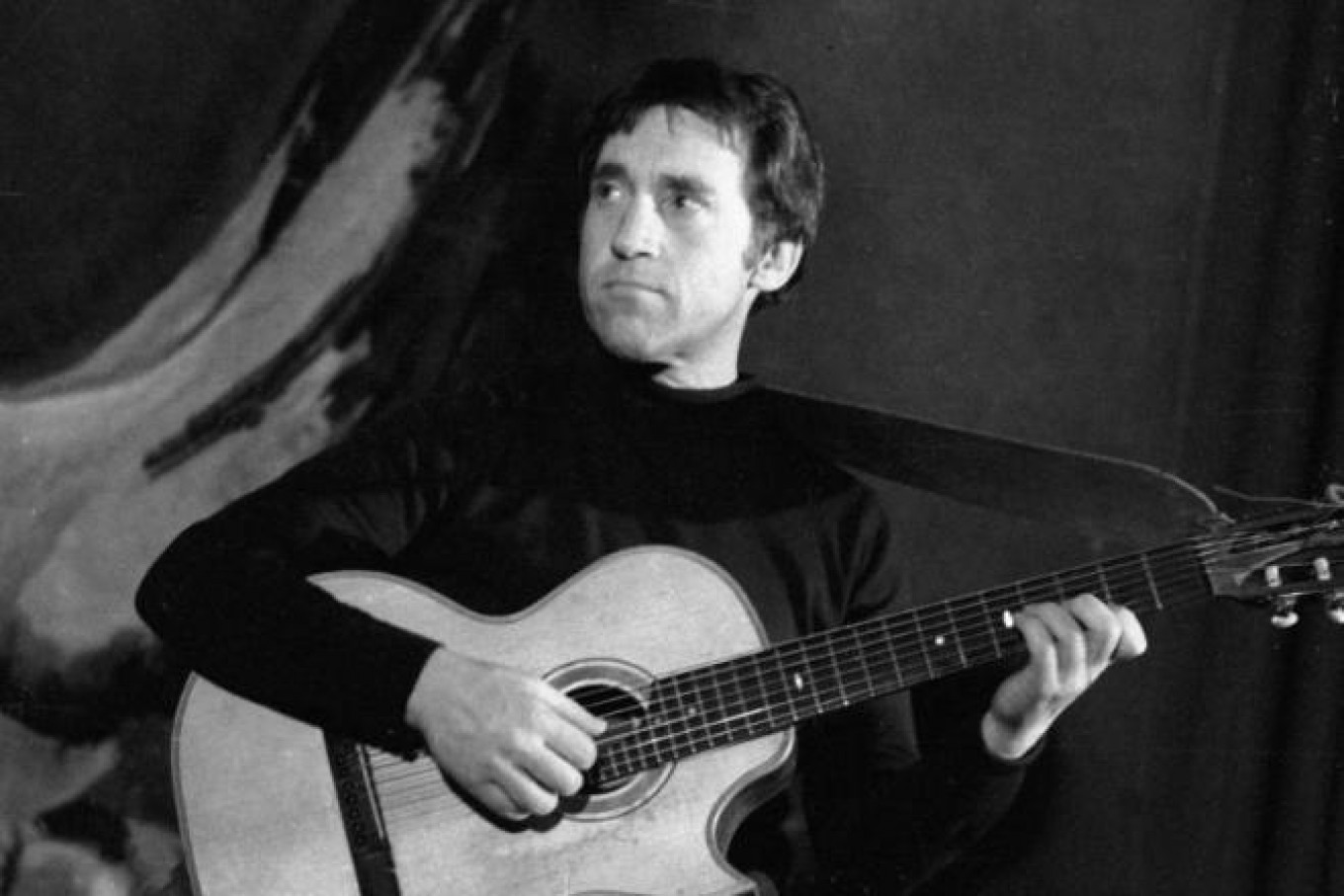
On Tuesday Kultura goes all literary on you – in a good way! First viewers get a fine documentary on two classic Soviet writers from Odessa, “Evgeny Petrov and Valentin Kataev: Two Brothers” (2003). Petrov was half of the immortal satirical team of Ilf and Petrov (“The Twelve Chairs”), and his older brother Kataev was a much-praised novelist (“Time, Forward!”) as well as a playwright and screenwriter. This dual biography, written by Irina Shakhova and directed by Elena Nikitan, gives a good sense of how the Odessites became Muscovites – and changed the literary landscape of their country in the process.
Then in the
evening we get the Russian intelligentsia doing what it does best: make good
conversation. This week’s episode of Igor Volgin’s high-dome talk show “The
Glass Bead Game” is devoted to “The Poetry of Vladimir Vysotsky” – a topic of both
endless depth and all-comers accessibility, as almost every Russian has a
favorite Vysotsky line or two he’ll gladly quote (or sing) for you. Join Volgin
and director-screenwriter Nikita Vysotsky (the poet’s son), writer Vladimir Novikov,
poet Alexander Gorodnitsky and actor Veniamin Smekhov for some stimulating
back-and-forth about the poetic heritage of a national icon you should know
better.
Evgeny Petrov and Valentin Kataev: Two Brothers Евгений Петров, Валентин Катаев. Два брата. Kultura, Tuesday at 4:50 p.m.
The Poetry of Vladimir Vysotsky Поэзия Владимира Высоцкого. Kultura, Tuesday at
9:15 p.m.
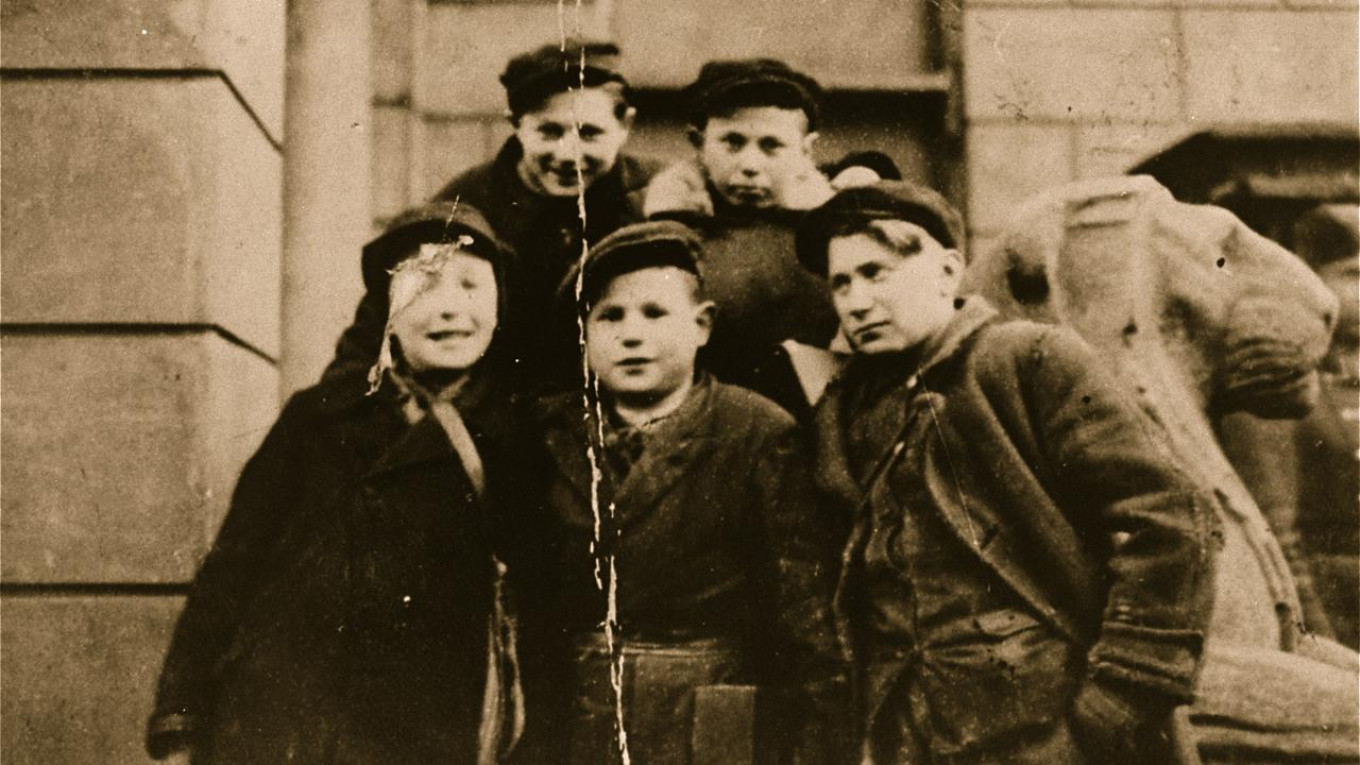
On Wednesday and Thursday Moscow TV offers viewers more insight into recent Polish heritage and Russian-Polish relations than Muscovites have seen on their small screens in a very long time. Wednesday begins with the excellent French documentary “Little Heroes from the Warsaw Ghetto” (2013), an account of five of the 100,000 Jewish children who escaped the infamous urban prison and survived outside it until 1945 – by scrounging, singing and selling cigarettes to indifferent or hostile civilians and occupying troops. If you are unmoved by these poignant stories of resourcefulness and courage, you need to check your wrist for a pulse.
That evening Kultura’s “The Power of Fact” series presents a discussion on the theme “Russia and Poland: The Myths of Historical Memory.” Few neighbors share such different – and often seemingly irreconcilable – views of a past that has overlapped since the Middle Ages. Joining host Mikhail Remizov will be regional specialists Oleg Nemensky and Mariya Leskinen for a good going-over of such topics as “Historical Memory in Poland”; “The Exiled Poles and Russia’s Intellectual Elite”; and “Stanislaus Augustus Poniatowski: The Man and the Symbol.” The fact that one of Moscow’s national TV outlets is airing educated people’s conversation about such contentious subjects is itself cause for guarded optimism.
Late Thursday night Channel One, the nation’s flagship station, makes its own contribution to Russian-Polish détente by airing a recent Polish-American-Russian documentary about a heroic Pole few Russians have ever heard of: Slawomir Grunberg’s "Karski and the Lords of Humanity" (2015) recounts the remarkable story of Jan Karski (1914-2000), the Polish resistance fighter and diplomat who risked his life during World War II to get word of the Holocaust to the West. While he succeeded in a sense – Karski’s meeting with Franklin Roosevelt showed that he was taken seriously – his message could not, alas, keep the tragedy from continuing. He remains a hero to millions, however: honored by Israel as a gentile “Righteous Among the Nations” and by each of the Allied powers, Karski left a legacy as a human rights advocate in the face of authoritarian power that is aptly summed up by a British observer: “If you find yourself in a circumstance…[where] you can do something to make a difference, let Karski’s story be one of those that inspires you to try.”
Little Heroes from the Warsaw Ghetto Маленькие герои варшавского гетто. Viasat History,
Wednesday at 5:55 a.m.
Russia
and Poland: The Myths of Historical Memory Россия и Польша: мифы исторической
памяти. Kultura, Wednesday at 9:15 p.m.
Karski and
the Lords of Humanity Ян Карский. Праведник мира. Channel One, Friday at 12:35 a.m.
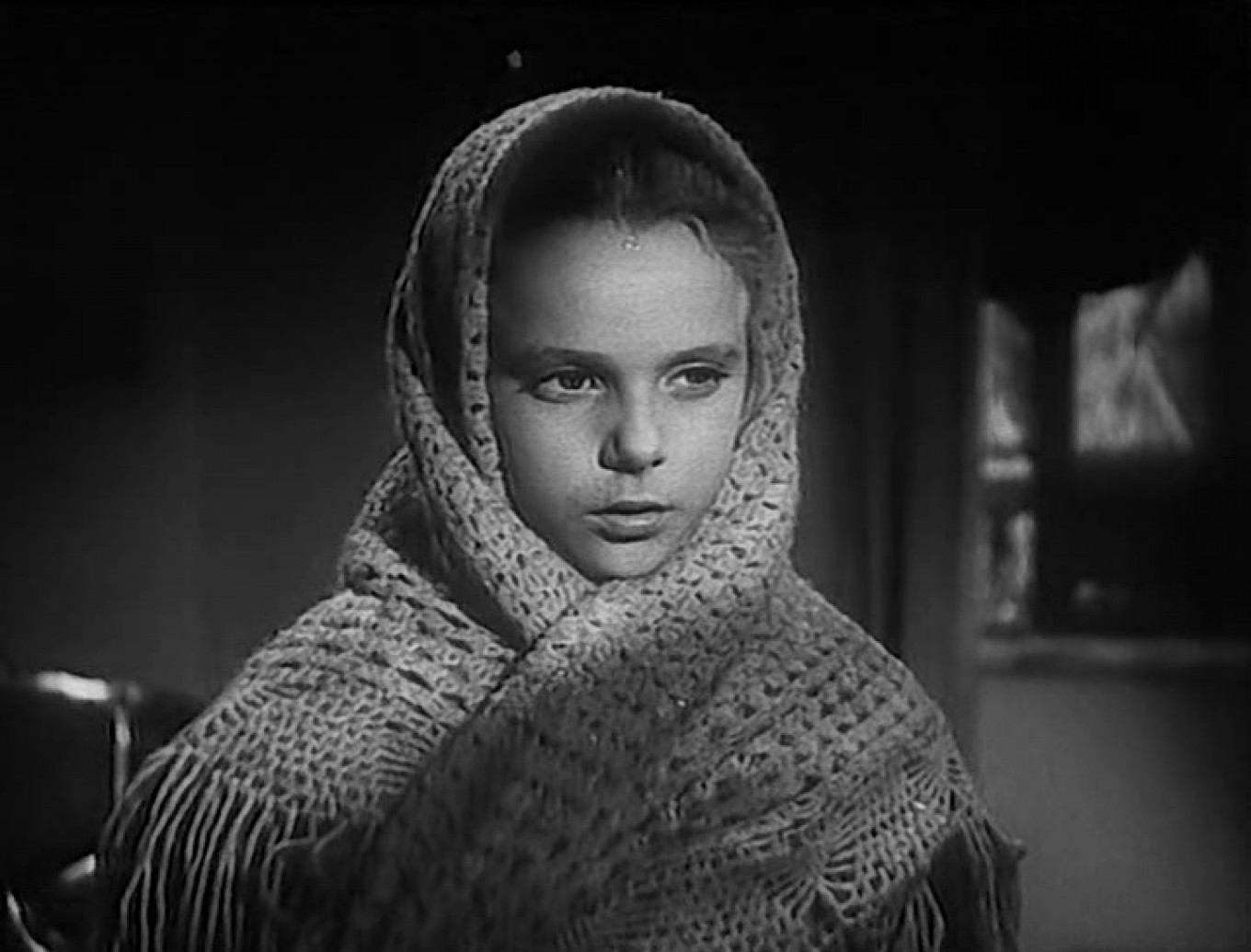
Friday is the anniversary of the breaking of the 900-day Leningrad Blockade (1941-1944) and Kultura is airing three programs to honor the occasion. In the morning viewers get Viktor Eisymont’s much-praised feature “There Once Was a Girl” (1944), the story of how seven year old Nastenka and her five year old friend Katya survived the cold, hunger and bombs that made up people’s daily routine during the siege. This moving feature is followed in the afternoon by performances of works written by Leningrad composers during the war. Taped in the Great Hall of the St. Petersburg Philharmonic, the collective concert is titled “Leningraders: 900 Days in the Name of Life” and features two state choruses, a half-dozen soloists and the Svetlanov State Academic Symphony Orchestra.
In the evening viewers get one of the best episodes of Kultura’s
documentary series on individual lives in wartime: “My Great War: Galina
Korotkevich” (2012) tells the story of a young theater student and actress who fought the
good fight throughout the entire blockade. She performed much of the time for
civilians who were dying and soldiers who soon would – often working, as she
recalls, “with a smile that never left one’s face – literally, because the cold
had set the muscles in place.”
Korotkevich also appeared with the Leningrad Red Army Home Theater on three
regional fronts, performing for frontline troops in venues that were literally
under fire. She eventually went on to a long and distinguished theatrical
career after the war, giving a half-century of memorable performances over a spectrum
of productions that ranged from Griboyedov to Gorky and Molière to Neil Simon.
Tune in and see how she herself views this “adult” lifetime of admirable work
in comparison to her wartime acting experience. Correct – there really is no
comparison.
There Once Was a Girl Жила-была девочка. Kultura, Friday at 10:20 a.m.
Leningraders:
900 Days in the Name of Life Ленинградцы. 900 дней во имя жизни. Kultura,
Friday at 5:15 p.m.
My Great War: Galina Korotkevich Моя великая война. Галина Короткевич. Kultura, Friday at 6:45 p.m.
Mark H. Teeter is the editor of Moscow TV Tonite on Facebook.
A Message from The Moscow Times:
Dear readers,
We are facing unprecedented challenges. Russia's Prosecutor General's Office has designated The Moscow Times as an "undesirable" organization, criminalizing our work and putting our staff at risk of prosecution. This follows our earlier unjust labeling as a "foreign agent."
These actions are direct attempts to silence independent journalism in Russia. The authorities claim our work "discredits the decisions of the Russian leadership." We see things differently: we strive to provide accurate, unbiased reporting on Russia.
We, the journalists of The Moscow Times, refuse to be silenced. But to continue our work, we need your help.
Your support, no matter how small, makes a world of difference. If you can, please support us monthly starting from just $2. It's quick to set up, and every contribution makes a significant impact.
By supporting The Moscow Times, you're defending open, independent journalism in the face of repression. Thank you for standing with us.
Remind me later.






